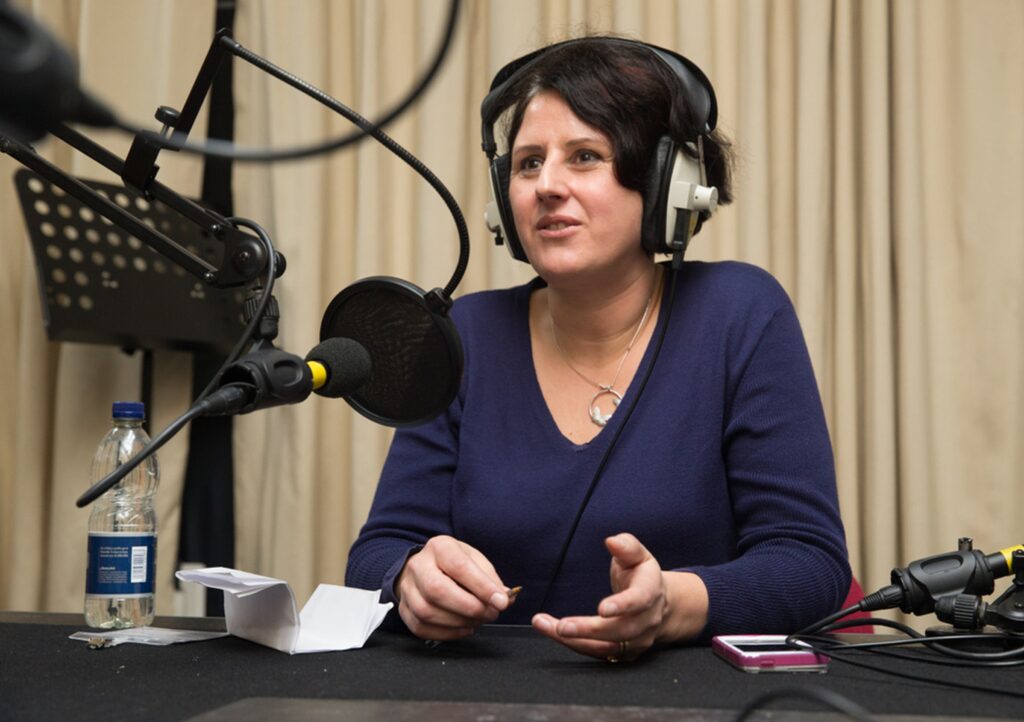Saints Spotlight: Dr Margaret McCartney

Dr Margaret McCartney, Senior Lecturer, School of Medicine. Credit: The British Medical Journal
How did your St Andrews story start?
My eldest son went to the University of St Andrews to study maths and, despite having lived in Scotland all my life, dropping him off was the first time I’d visited the town. I was quite enchanted. Then the pandemic happened, and there was little chance for relaxed visits.
Although I’d been writing about evidence-based medicine for years, I didn’t have a formal academic position until 2019, when I was awarded one day a week to work on research through the Chief Scientist Office and I needed a Scottish university to work from. A colleague at the University of Oxford recommended that I speak to Professor Frank Sullivan in the School of Medicine at St Andrews, and I’ve been working here since. In 2024, after a lot of work and support from fantastic colleagues, I was awarded my PhD and appointed Senior Lecturer.
What are your current priorities in your role at the University?
General practice is a brilliant but very busy job, and so I am very grateful for the head space to look up and out from my clinical work at the environment in which we practice. My role at the University gives me that space.
I’m a strong advocate for evidence-based medicine – it’s the only authority medicine has, otherwise we may as well be homeopaths! But the way we find and use evidence can cause multiple biases. People may think they are ‘evidence based’ but cherry pick studies to rely on, have conflicted interests, or perhaps they don’t explain the uncertainties that the research contains. This causes harm to patients, healthcare systems and professionalism.
My work is about how to help people to make better decisions through critical appraisal of evidence, and how to stop conflicts of interest harming patients, as they did during the opioid crisis in the US, or the mesh scandal in the UK.
I am also a tutor to some great medical students at St Andrews and helped to set up the Evidence Based Early Diagnosis conference in St Andrews in 2024. Outside of the University, I am a writer and broadcaster, talking and writing about evidence and the way it gets misused – and the need to use it carefully to improve healthcare.
What is the focus of your research at St Andrews?
We know that conflicts of interest – competing loyalties, which in medicine are dominantly financial – are usually associated with more expensive, poorer quality healthcare. My PhD examined the ways in which these are recorded and whether they can be easily found and used. We found – despite massive efforts – that the system that exists to declare and manage these isn’t working. In fact, it may be making conflicts worse as people can feel that when they declare them they have been honest, and therefore this somehow makes the conflicts go away. They don’t.
My work now is trying to establish what a better system would look like. I’m also working on ways to help people make better decisions by using evidence-based medicine – from politicians to medical students – and importantly, to support critical thinking, which can be hard to maintain in practice.
Tell us about your proudest achievement.
My spouse and children! Also being in the same practice for over 20 years and knowing patients and their families really well. I’m also proud of being awarded my PhD, completing the Raid Pyrenees (a challenge where you cycle across France in 100 hours) and being a Director at Beira’s Place, a sexual violence support service for women, based in Edinburgh.
Where is your favourite spot in St Andrews?
West Sands, in the sea. Bliss.